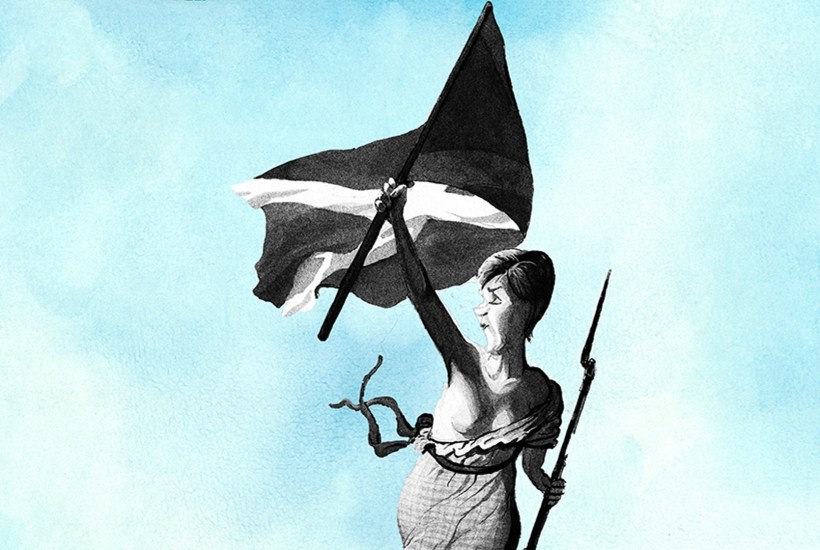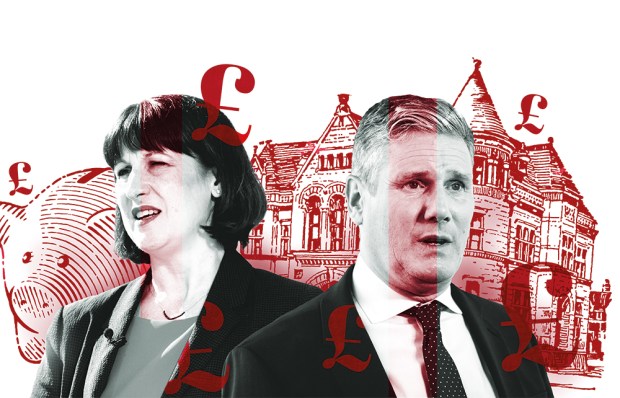There is a satirical flowchart that sums up Scottish nationalism better than a thousand articles. It begins with the question: ‘Did Scotland do good?’ The chart branches off to the left for ‘Yes’ and the right for ‘No’. Answer ‘Yes’ and you are led to the outcome ‘proof that Scotland doesn’t need the UK’. Answer ‘No’ and you are assured it is ‘proof that the UK is holding Scotland’ back. Both branches then lead to the same end: ‘Independence’.
Andrew Wilson is a walking, talking, but above all, believing version of this flowchart. In fact, it should be christened the ‘Wilson Diagram of Infinite Nationalism’. All that is good in Scotland is proof that Scotland should be independent; all that is bad is proof that Scotland should be independent. Insofar as nationalism has replaced presbyterianism as the religion of the Scottish establishment, the conviction that an independent Scotland is elect – regardless of its vices – and Scotland within the UK reprobate – regardless of its virtues – is simply a new spin on the doctrine of predestination.
Wilson, an SNP MSP turned lobbyist, chaired the Scottish Government’s ‘Sustainable Growth Commission’ on the economics of a separate Scotland. The findings of the commission, in keeping with the diagram of infinite nationalism, demonstrate whatever any given nationalist needs to demonstrate at any given time. For example, Wilson both appears to recommend what the Institute for Fiscal Studies describes as ‘a continuation of austerity’ and warns that ‘austerity in any form would be self-harming and entirely counterproductive’. Not content with being both for and against austerity, he managed to effectively frame redistribution as bad for the poor, reasoning that ‘relying on fiscal transfers locks in structural inequality’. You can see why his PR skills are in such high demand.
Writing in the Times yesterday, he argued once more that Scexit ‘could be funded and at historically low costs of borrowing’ and that there was ‘a historic opportunity amid all the pain of this crisis to borrow cheaply and invest wisely and on a very significant scale’. When Wilson published his commission’s report back in 2018, the economist Brian Ashcroft pointed out the obvious:
Scotland couldn’t keep borrowing to pay for spending in excess of its tax take – the markets wouldn’t allow it, especially a new state with no financial track record, with no central bank and borrowing in a foreign currency if sterling is adopted.
Historically low interest rates do make borrowing cheaper, but they change none of the other realities Professor Ashcroft noted two years ago. So it comes back to what it always comes back to: crippling tax rises or crippling spending cuts. We know where most of the pain will fall – and it won’t be postcodes near Andrew Wilson.
Great and enduring hatreds were set free during the 2014 referendum, but Wilson is neither hateful nor a hater. By all accounts, he is a decent, pleasant and industrious person. To the best of my recollection, we have met once – maybe twice – and he was the very soul of courtesy. The problem with Wilson is not that he hates, it’s that he believes. He has the unbounded imagination of a patriot and the invulnerability to facts of an ideologue. I consider him a thinker of magical thoughts, though others would be less charitable.
I have grown tired of magical thinking and sola fide nationalism. Faith is not enough; I need the material as well as the spiritual. That puts me in the minority in Scotland these days, where support for Scexit grows higher and economic consequences become graver. Nationalism is infinite and belief in it, too. Facts no longer pose a threat — they are a test of faith to be overcome.
Got something to add? Join the discussion and comment below.
Get 10 issues for just $10
Subscribe to The Spectator Australia today for the next 10 magazine issues, plus full online access, for just $10.




















Comments
Don't miss out
Join the conversation with other Spectator Australia readers. Subscribe to leave a comment.
SUBSCRIBEAlready a subscriber? Log in